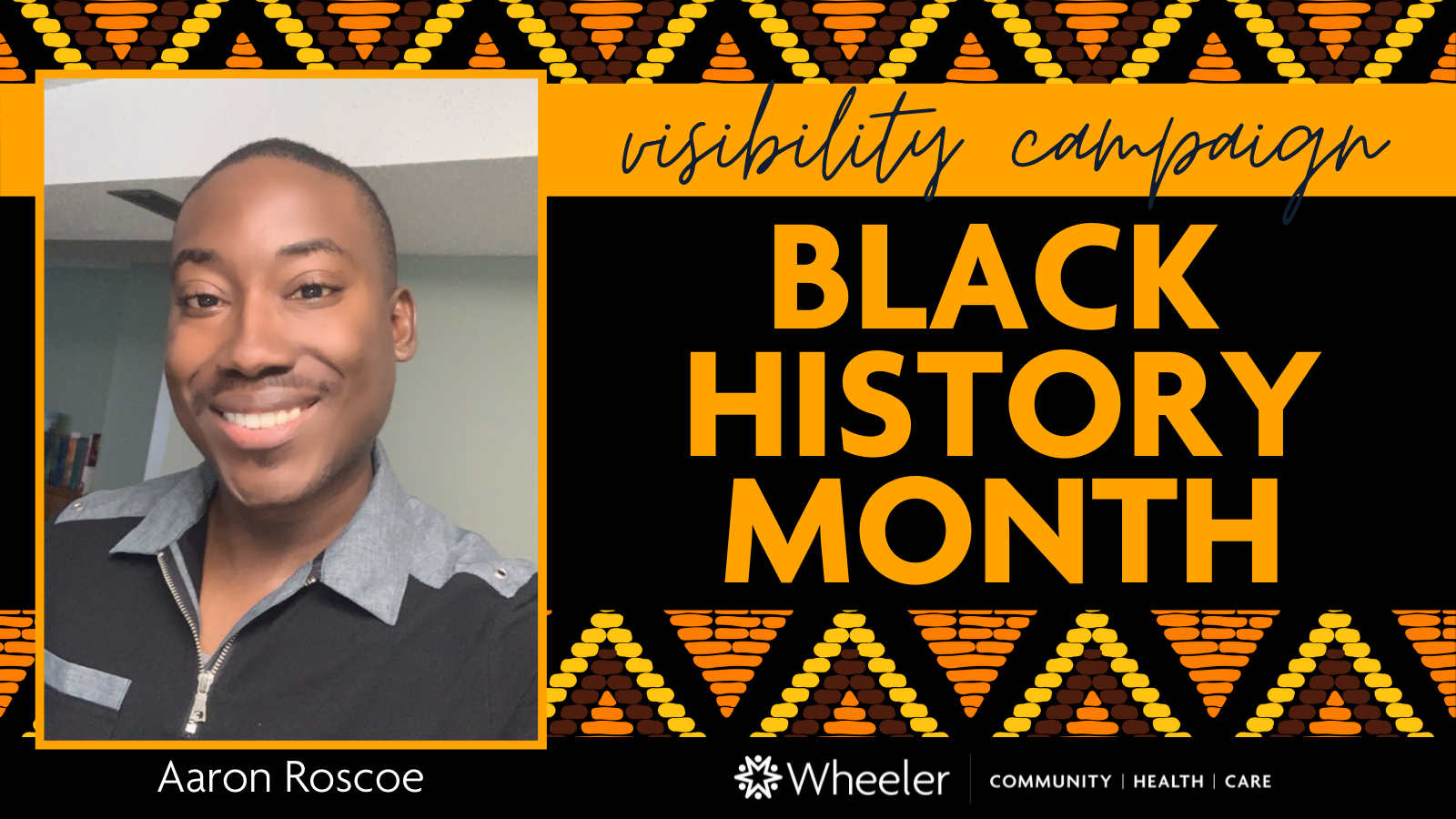Black History Month Visibility Campaign: Aaron Roscoe, MSN, RN, CPhT

Throughout Black History Month, we are spotlighting our Black staff through our Visibility Campaign series, as well as our staff who have a passion for support and advocacy. Today's spotlight goes to Aaron Roscoe, MSN, RN, CPhT.
Aaron joined Wheeler nine months ago as a MAT nurse in the New Britain Family Health & Wellness Center before being promoted to the registered nurse site supervisor at the Plainville Family Health & Wellness Center. His nursing career began at Saint Mary’s Hospital in Waterbury in the medical surgical unit. While pursuing his master’s degree, Aaron became a group home nurse.
How do you support your health and wellness? My family has a history of hypertension and diabetes, therefore, to help fight those familial risk factors, I try to maintain a healthy balance of diet and exercise. We try to avoid adding salt to our foods by buying reduced sodium items, if available, and watch our intake of fried foods. I go to the gym for exercise, enjoy walking on trails, and swimming during the summer.
Mental health is just as important as our physical health, so I try to make time during the week to enjoy my hobbies which include playing video games, reading comics, and having board game nights with friends, to name a few.
How can employers support the health and wellness of their staff; specifically, Black staff? I think employers in general need to start by examining the organization introspectively to determine if their values, ideals, and mission reflect those who work for their organization, and are also served by their organization. Having frequent diversity audits that are reviewed regularly is one step to help achieve this goal.
Make sure that the environment in which a person of color works is also a way to support staff. People of color want to feel incorporated into the organization and feel like their voices are heard. This promotes a positive work environment where staff feel comfortable and have a sense of belonging. This leads to a less hostile work environment and less stress that the person of color must carry within themselves, in addition to the stress that we carry everyday by just being Black in America.
Why is it important to address racism as a public health issue? Sadly, racism is something that can be silenced, but never eradicated. This means we live in a world where sometimes we must always walk on eggshells and stay alert to assess an everyday situation. However, this does not make it right. Therefore, it is essential that we speak on racism in the workplace, schools, businesses, and at home. Racism transcends the very infrastructure of America. It affects health care, access to resources, employment, and many more core themes of human life. So, when we see these things going on, we must speak about it, in the hopes that our words will inspire others around us to help promote change. Change cannot happen without a voice, and it is up to us to speak up for future generations. My life would be different without the voices of our ancestors, and we must carry on their legacy. That starts with voicing the injustices we see around us to try to promote greater change.
How can health care organizations and providers address the racial inequities in healthcare? Health care organizations should strive to educate their providers on the various health care inequalities that exist in the diverse populations that they treat. Health care organizations need to teach their staff to look at the individual and not their diagnosis. They need to promote, encourage, and educate on the importance of preventative care. Providers should also be taught that people of color react more or differently to certain treatments or medications than their Caucasian counterparts. Therefore, promoting holistic care where the individual is assessed as a whole; mind, body, and spirit, can lead to promoting patient education, while encouraging patient retention, and leading to better outcomes.
What are the most significant challenges that Black communities face today in achieving health equity? Equal access to health care, lack of trust in medical professionals, limited health care literacy, and socio-economic disparities of the Black community are some challenges that affect health equity in our community.





